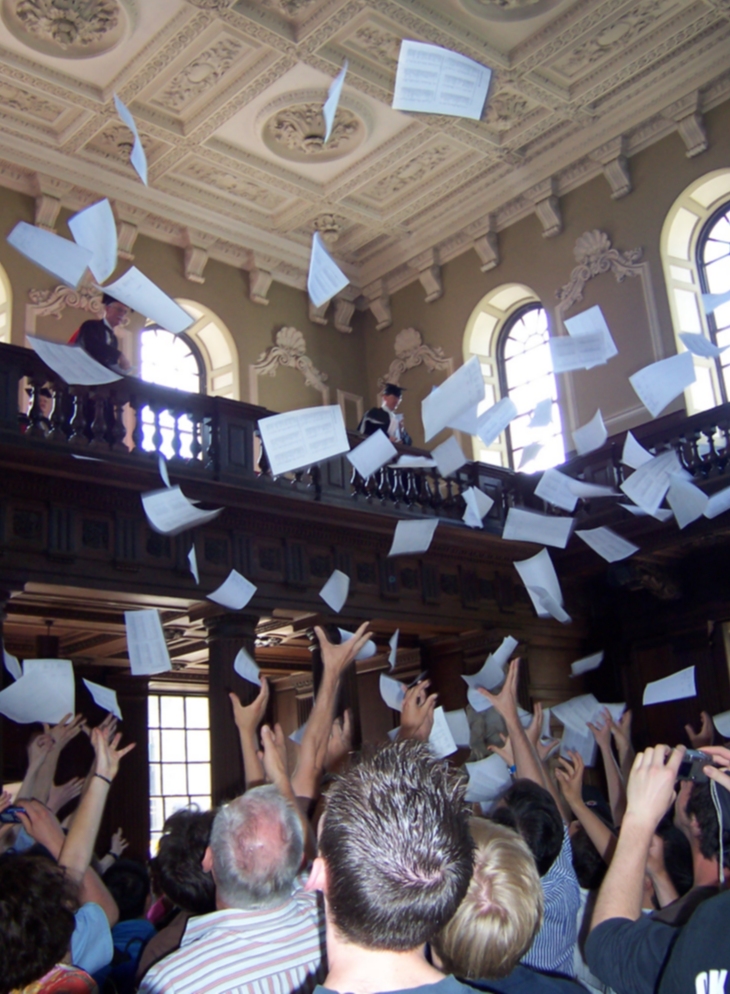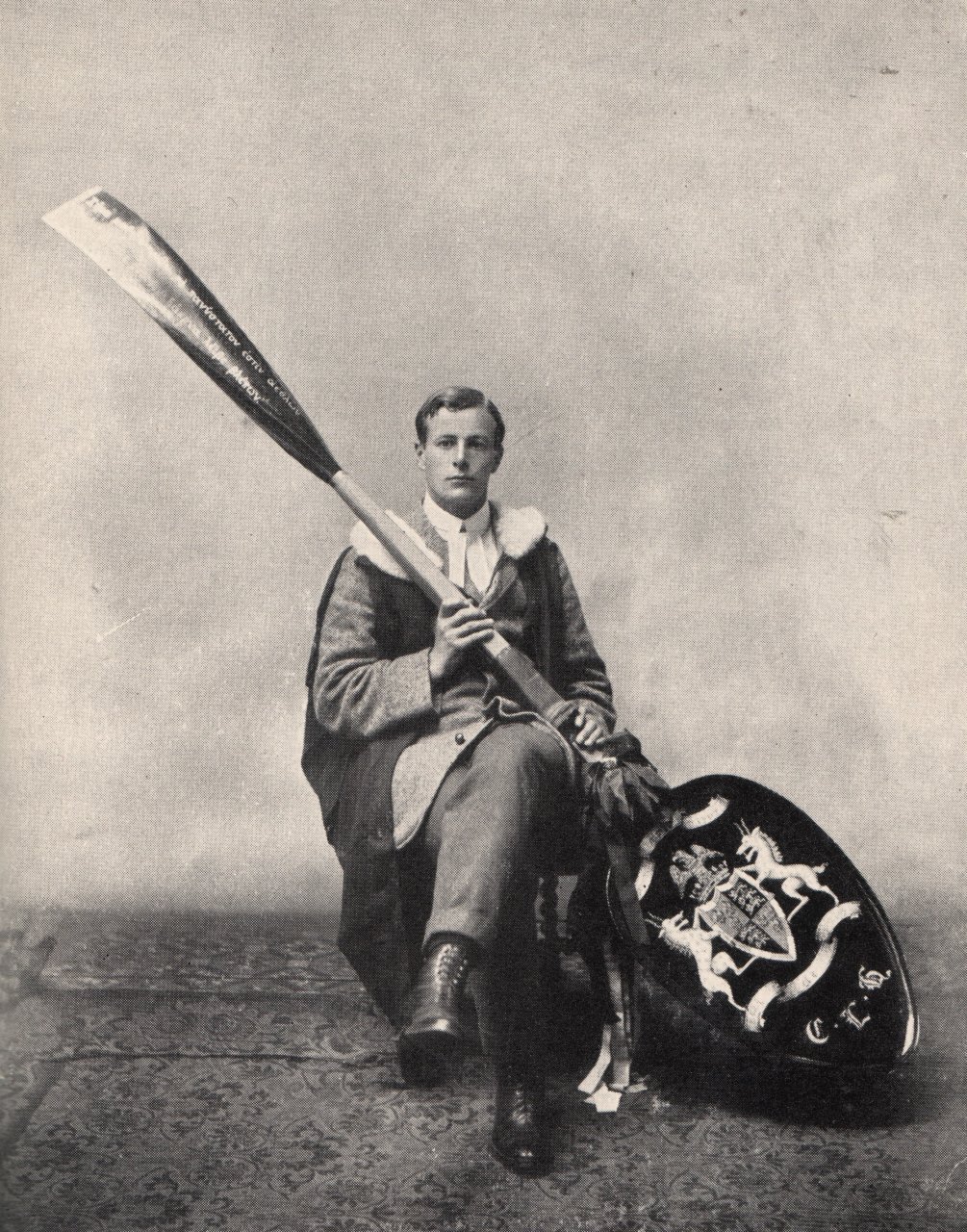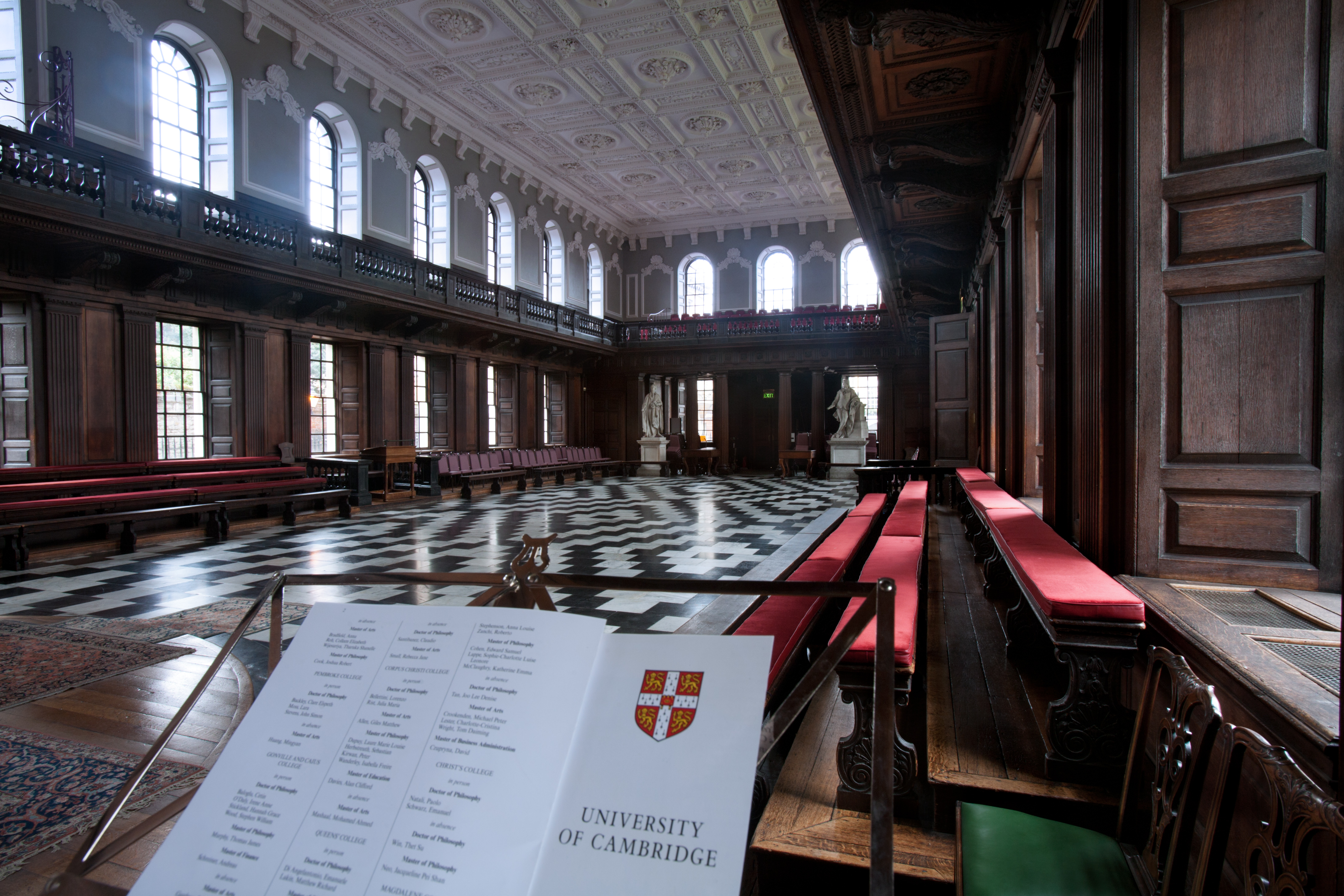|
Tripos
At the University of Cambridge, a Tripos (, plural 'Triposes') is any of the examinations that qualify an undergraduate for a bachelor's degree or the courses taken by a student to prepare for these. For example, an undergraduate studying mathematics is said to be reading for the ''Mathematical Tripos'', whilst a student of English literature is reading for the ''English Tripos''. In most traditional English universities, a student registers to study one field exclusively, rather than having " majors" or " minors" as in American, Australian, Canadian, or Scottish universities. In practice, however, most degrees may be fairly interdisciplinary in nature, depending on the subject. The multi-part tripos system at Cambridge also allows substantial changes in field between parts; the Natural Sciences Tripos is especially designed to allow a highly flexible curriculum across the sciences. Etymology The word has an obscure etymology, but may be traced to the three-legged stool candid ... [...More Info...] [...Related Items...] OR: [Wikipedia] [Google] [Baidu] |
Cambridge Mathematical Tripos
The Mathematical Tripos is the mathematics course that is taught in the Faculty of Mathematics at the University of Cambridge. It is the oldest Tripos examined at the University. Origin In its classical nineteenth-century form, the tripos was a distinctive written examination of undergraduate students of the University of Cambridge. Prior to 1824, the Mathematical Tripos was formally known as the "Senate House Examination". From about 1780 to 1909, the "Old Tripos" was distinguished by a number of features, including the publication of an order of merit of successful candidates, and the difficulty of the mathematical problems set for solution. By way of example, in 1854, the Tripos consisted of 16 papers spread over 8 days, totaling 44.5 hours. The total number of questions was 211. The actual marks for the exams were never published, but there is reference to an exam in the 1860s where, out of a total possible mark of 17,000, the senior wrangler achieved 7634, the second wrangl ... [...More Info...] [...Related Items...] OR: [Wikipedia] [Google] [Baidu] |
Mathematical Tripos
The Mathematical Tripos is the mathematics course that is taught in the Faculty of Mathematics at the University of Cambridge. It is the oldest Tripos examined at the University. Origin In its classical nineteenth-century form, the tripos was a distinctive written examination of undergraduate students of the University of Cambridge. Prior to 1824, the Mathematical Tripos was formally known as the "Senate House Examination". From about 1780 to 1909, the "Old Tripos" was distinguished by a number of features, including the publication of an order of merit of successful candidates, and the difficulty of the mathematical problems set for solution. By way of example, in 1854, the Tripos consisted of 16 papers spread over 8 days, totaling 44.5 hours. The total number of questions was 211. The actual marks for the exams were never published, but there is reference to an exam in the 1860s where, out of a total possible mark of 17,000, the senior wrangler achieved 7634, the second wrang ... [...More Info...] [...Related Items...] OR: [Wikipedia] [Google] [Baidu] |
University Of Cambridge
, mottoeng = Literal: From here, light and sacred draughts. Non literal: From this place, we gain enlightenment and precious knowledge. , established = , other_name = The Chancellor, Masters and Scholars of the University of Cambridge , type = Public research university , endowment = £7.121 billion (including colleges) , budget = £2.308 billion (excluding colleges) , chancellor = The Lord Sainsbury of Turville , vice_chancellor = Anthony Freeling , students = 24,450 (2020) , undergrad = 12,850 (2020) , postgrad = 11,600 (2020) , city = Cambridge , country = England , campus_type = , sporting_affiliations = The Sporting Blue , colours = Cambridge Blue , website = , logo = University of Cambridge logo ... [...More Info...] [...Related Items...] OR: [Wikipedia] [Google] [Baidu] |
Natural Sciences Tripos
The Natural Sciences Tripos (NST) is the framework within which most of the science at the University of Cambridge is taught. The tripos includes a wide range of Natural Sciences from physics, astronomy, and geoscience, to chemistry and biology, which are taught alongside the history and philosophy of science. The tripos covers several courses which form the University of Cambridge system of Tripos. It is known for its broad range of study in the first year, in which students cannot study just one discipline, but instead must choose three courses in different areas of the natural sciences and one in mathematics. As is traditional at Cambridge, the degree awarded after Part II (three years of study) is a Bachelor of Arts (BA). A Master of Natural Sciences degree (MSci) is available to those who take the optional Part III (one further year). It was started in the 19th Century. Teaching Teaching is carried out by 16 different departments. Subjects offered in Part IA in 2019 are Bio ... [...More Info...] [...Related Items...] OR: [Wikipedia] [Google] [Baidu] |
British Undergraduate Degree Classification
The British undergraduate degree classification system is a grading structure for undergraduate degrees or bachelor's degrees and integrated master's degrees in the United Kingdom. The system has been applied (sometimes with significant variations) in other countries and regions. History The classification system as currently used in the United Kingdom was developed in 1918. Honours were then a means to recognise individuals who demonstrated depth of knowledge or originality, as opposed to relative achievement in examination conditions. Concern exists about possible grade inflation. It is claimed that academics are under increasing pressure from administrators to award students good marks and grades with little regard for those students' actual abilities, in order to maintain their league table rankings. The percentage of graduates who receive a First (First Class Honours) has grown from 7% in 1997 to 26% in 2017, with the rate of growth sharply accelerating toward the end of ... [...More Info...] [...Related Items...] OR: [Wikipedia] [Google] [Baidu] |
Senate House (University Of Cambridge)
The Senate House is a 1720s building of the University of Cambridge in England, used formerly for meetings of its senate and now mainly for graduation ceremonies. Location and construction The building, which is situated in the centre of the city between King's and Gonville and Caius Colleges, was designed by architect James Gibbs, based to an unclear extent on designs by the gentleman-architect Sir James Burrough, and built in 1722–1730 by Gibbs in a neo-classical style using Portland stone. The ceremony to lay the first stone was performed by Thomas Crosse, then Vice-Chancellor, on 22 June 1722.Cooper, Charles Henry (1866) "Memorials of Cambridge (Volume 3)", Cambridge: Wm Metcalfe. The site was previously used for houses, which were purchased by an Act of Parliament, dated 11 June 1720. It was officially opened in July 1730, although the western end was not completed until 1768. The Senate House was originally intended to be one side of a quadrangle, however the rest ... [...More Info...] [...Related Items...] OR: [Wikipedia] [Google] [Baidu] |
Test (assessment)
An examination (exam or evaluation) or test is an educational assessment intended to measure a test-taker's knowledge, skill, aptitude, physical fitness, or classification in many other topics (e.g., beliefs). A test may be administered verbally, on paper, on a computer, or in a predetermined area that requires a test taker to demonstrate or perform a set of skills. Tests vary in style, rigor and requirements. There is no general consensus or invariable standard for test formats and difficulty. Often, the format and difficulty of the test is dependent upon the educational philosophy of the instructor, subject matter, class size, policy of the educational institution, and requirements of accreditation or governing bodies. A test may be administered formally or informally. An example of an informal test is a reading test administered by a parent to a child. A formal test might be a final examination administered by a teacher in a classroom or an IQ test administered by a psych ... [...More Info...] [...Related Items...] OR: [Wikipedia] [Google] [Baidu] |
Department Of Anglo-Saxon, Norse And Celtic, University Of Cambridge
The Department of Anglo-Saxon, Norse and Celtic (ASNC or, informally, ASNaC) is one of the constituent departments of the University of Cambridge, and focuses on the history, material culture, languages and literatures of the various peoples who inhabited Britain, Ireland and the extended Scandinavian world in the early Middle Ages (5th century to 12th century). It is based on the second floor of the Faculty of English at 9 West Road. In Cambridge University jargon, its students are called ''ASNaCs''. It remains the only university faculty or department in the world to focus entirely on the early Middle Ages. Name The name ''Anglo-Saxon, Norse and Celtic'' dates to 1971, when the Department of Anglo-Saxon and Kindred Studies was renamed.E. S. Leedham-Green, ''A Concise History of the University of Cambridge'' (Cambridge: Cambridge University Press, 1996), pp. 226-27. The acronym ''ASNC'' or ''ASNaC'' is pronounced //, and originally denoted members of the ASNC Society rather ... [...More Info...] [...Related Items...] OR: [Wikipedia] [Google] [Baidu] |
University Of Chicago Press
The University of Chicago Press is the largest and one of the oldest university presses in the United States. It is operated by the University of Chicago and publishes a wide variety of academic titles, including ''The Chicago Manual of Style'', numerous academic journals, and advanced monographs in the academic fields. One of its quasi-independent projects is the BiblioVault, a digital repository for scholarly books. The Press building is located just south of the Midway Plaisance on the University of Chicago campus. History The University of Chicago Press was founded in 1890, making it one of the oldest continuously operating university presses in the United States. Its first published book was Robert F. Harper's ''Assyrian and Babylonian Letters Belonging to the Kouyunjik Collections of the British Museum''. The book sold five copies during its first two years, but by 1900 the University of Chicago Press had published 127 books and pamphlets and 11 scholarly journals, includ ... [...More Info...] [...Related Items...] OR: [Wikipedia] [Google] [Baidu] |
Gazette
A gazette is an official journal, a newspaper of record, or simply a newspaper. In English and French speaking countries, newspaper publishers have applied the name ''Gazette'' since the 17th century; today, numerous weekly and daily newspapers bear the name ''The Gazette''. Etymology ''Gazette'' is a loanword from the French language, which is, in turn, a 16th-century permutation of the Italian ''gazzetta'', which is the name of a particular Venetian coin. ''Gazzetta'' became an epithet for ''newspaper'' during the early and middle 16th century, when the first Venetian newspapers cost one gazzetta. (Compare with other vernacularisms from publishing lingo, such as the British ''penny dreadful'' and the American ''dime novel''.) This loanword, with its various corruptions, persists in numerous modern languages (Slavic languages, Turkic languages). Government gazettes In England, with the 1700 founding of ''The Oxford Gazette'' (which became the '' London Gazette''), the word ... [...More Info...] [...Related Items...] OR: [Wikipedia] [Google] [Baidu] |
Master's Degree
A master's degree (from Latin ) is an academic degree awarded by universities or colleges upon completion of a course of study demonstrating mastery or a high-order overview of a specific field of study or area of professional practice. A master's degree normally requires previous study at the bachelor's degree, bachelor's level, either as a separate degree or as part of an integrated course. Within the area studied, master's graduates are expected to possess advanced knowledge of a specialized body of and applied topics; high order skills in |





